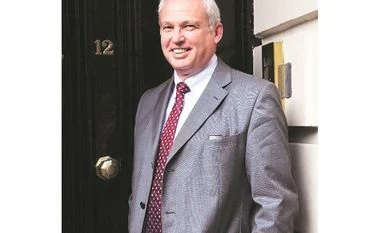The London-based Chartered Institute of Arbitrators (CIArb), with over 16,000 members based in 133 countries, trains arbitrators and mediators globally. In a recent visit to India, the institute’s director general Anthony Abrahams, shares with Sudipto Dey his views on the challenges the country could face while positioning itself as an international hub for arbitration. Edited excerpts:
How is the institute’s experience in training arbitrators and mediators?
We received a Royal Charter in 1979 to facilitate and promote arbitration and other forms of dispute resolution, rather than going to the court. We educate, train and qualify arbitrators. We are the only body that delivers world-recognised qualification in arbitration. All the leading arbitration centres across the world accept our CIArb Fellowship as an entry qualification for their panels.
Despite an English beginning, 65 per cent of our membership is outside the United Kingdom.
You don’t have to be a lawyer to be an arbitrator. Of the 16,000 members, only 1/3rd are lawyers; 1/3rd are surveyors of various kinds and the remaining is a mix of engineers, academics and accountants.
You need experts to deal with an issue under arbitration. For example, in a financial dispute, you may need the help of chartered accountants, or in a construction-related dispute, you may need the expertise of engineers. We publish rules and guidelines for our members to refer to. One of our tasks is to promote awareness about alternative dispute resolution (ADR) mechanisms.
CIArb has three types of members — associates, members and fellow. To qualify for any of these grades, one needs to have a mix of experience as an arbitrator and go through certain exams.
In India, we have 130 associates, 88 members and 45 Fellow.
The number of members in India does not appear very high. Why?
Around three years back, we just had around 200 students in India. So we started a student membership drive around two years ago. We began to concentrate on training at the beginning of a person’s career. Our India chapter works closely with leading universities and colleges in the country.
We currently have 396 students in India. So, India now represents almost 20 per cent of our student population globally. We recently launched another programme for students in India with a reduced fee for online examination. This will now be rolled out globally.
How should India go about developing the culture for alternative dispute resolution in the country?
As a lawyer, one is trained to take things apart and not put them back together. What is not taught at law schools is to how to put the client first. We need to understand at the contracting stage that relationships do go wrong and you need to be ready with a mechanism that bumps on the way are smoothed out.
Lawyers need to be taught at an early stage that going to court is the last resort.
They need to be equipped with techniques to identify potential conflict issues in advance and resolve them. Lawyers need to get involved with ADR mechanisms at an early stage of their career.
Around four years back, the Indian government expressed its desire to develop the country as a global hub for arbitration. What is your assessment of where we are on that journey?
The starting point is to look at domestic and government arbitration. Once domestic cases are dealt at home, this builds confidence in the system. For instance, in Malaysia, all adjudications are through a centre in Kuala Lumpur. That helped build a body of cases. People saw that the system was working and that it was respected. And then they begin to get some international cases.
India could learn from that. Let’s start domestically. Governments are involved in major projects. They should designate Indian centres to resolve disputes. And from that international will follow. There is a need to have institutional arbitration. The government needs to say that all our cases will go to a particular arbitration centre and that will help create a body of cases.
What is also important is that once an arbitration centre is established by the government, it should be seen (independent) and function independently.
Just like what Malaysia, Singapore or Dubai has done, the government has to invest in the infrastructure to set up a world-class arbitration centre. It then has to ensure that it is run independently in financial terms.
Currently, most international businesses in the Asia region would prefer to go to Singapore than come to India. But India is big enough to change that.
Do you see any other challenge to India’s aspiration of becoming an international arbitration hub?
India needs to broad base the talent pool of potential arbitrators and mediators. Technical experts, such as engineers, architects, technocrats, retired bureaucrats, accountants, company secretaries, need to join the pool on a full-time basis.
There is plenty of work for everyone. But governments — both the Centre and states — should come forward and develop that infrastructure and create the environment for encouraging alternative dispute resolution mechanism.
As an institute, we would like locals to train locals, build up a faculty locally.
Unlock 30+ premium stories daily hand-picked by our editors, across devices on browser and app.
Pick your 5 favourite companies, get a daily email with all news updates on them.
Full access to our intuitive epaper - clip, save, share articles from any device; newspaper archives from 2006.
Preferential invites to Business Standard events.
Curated newsletters on markets, personal finance, policy & politics, start-ups, technology, and more.
)